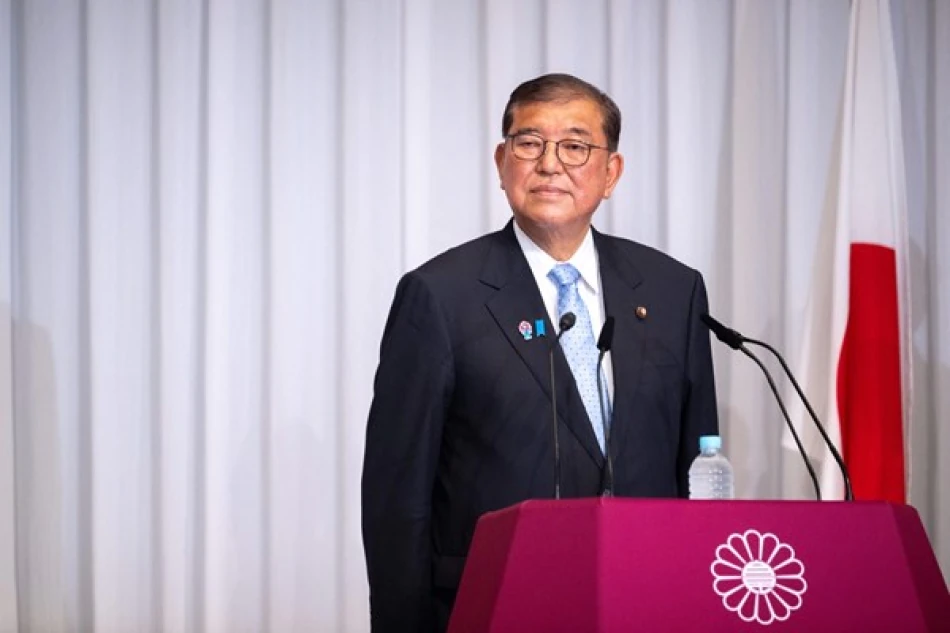
Japanese Prime Minister Aims to Remain in Office, Defying Expectations
Japan's PM Ishiba Defies Party Critics, Clings to Power After Electoral Defeat
Japanese Prime Minister Shigeru Ishiba is refusing to step down despite mounting pressure from his own Liberal Democratic Party (LDP) following a crushing electoral defeat that stripped the ruling party of its majority in the House of Councillors. His defiance signals a potential power struggle within Japan's political establishment at a critical time for the world's third-largest economy.
Ishiba's Last Stand
In a weekend interview with Japan's national broadcaster NHK, Ishiba doubled down on his leadership, declaring his intention to "dedicate myself to the people and the future of the country." The embattled prime minister cited his responsibility to implement a recently announced US-Japan trade agreement as justification for remaining in office, arguing that "the real work is just beginning."
Ishiba is scheduled to address LDP lawmakers on Monday in what could prove to be a make-or-break moment for his political survival. The meeting comes as party members increasingly demand accountability for the July 20 electoral disaster that saw the LDP lose its grip on the upper house of parliament.
The Electoral Reckoning
The July defeat represents more than just a political setback—it fundamentally alters Japan's governing dynamics. Without a majority in the House of Councillors, the LDP must now navigate coalition politics or seek opposition support for key legislation, potentially slowing economic reforms and policy implementation.
Historical Context
This electoral loss echoes Japan's political volatility of the 2000s and early 2010s, when prime ministers frequently rotated through office. The LDP's dominance, largely uninterrupted since 2012 under former PM Shinzo Abe's leadership, had provided Japan with rare political stability that international investors and trade partners had come to rely upon.
Economic and Market Implications
Ishiba's political weakness could complicate Japan's economic agenda at a delicate moment. The country faces mounting challenges including an aging population, persistent deflation concerns, and the need to strengthen its position amid US-China trade tensions.
Trade Deal at Risk
The US-Japan trade agreement that Ishiba is using to justify his tenure may itself become a casualty of political instability. Opposition parties could leverage their newfound influence to demand renegotiation or delay implementation, potentially straining the crucial US-Japan economic relationship.
Currency markets have historically reacted poorly to Japanese political uncertainty, and prolonged leadership questions could weaken the yen further, complicating the Bank of Japan's monetary policy decisions.
Regional Comparison and Global Stakes
Japan's political turbulence contrasts sharply with the stability seen in other major Asian economies. While South Korea and Singapore have maintained relatively consistent leadership despite electoral challenges, Japan's return to revolving-door politics could undermine its role as a regional anchor for democratic values and economic cooperation.
For international partners, particularly the United States, Ishiba's weakened position raises questions about Japan's ability to fulfill security commitments and trade obligations. The timing is particularly problematic as tensions with China over Taiwan and North Korea's nuclear program require coordinated regional responses.
The Path Forward
Monday's LDP meeting will likely determine whether Ishiba can survive long enough to implement his policy agenda or becomes another casualty of Japan's unforgiving political landscape. Even if he weathers immediate calls for resignation, governing without an upper house majority will require political skills that his electoral performance suggests he may lack.
The broader implications extend beyond Japanese domestic politics. In an era where democratic institutions face pressure globally, Japan's ability to maintain stable governance while respecting electoral outcomes serves as a test case for democratic resilience in developed nations.
Most Viewed News

 Layla Al Mansoori
Layla Al Mansoori






